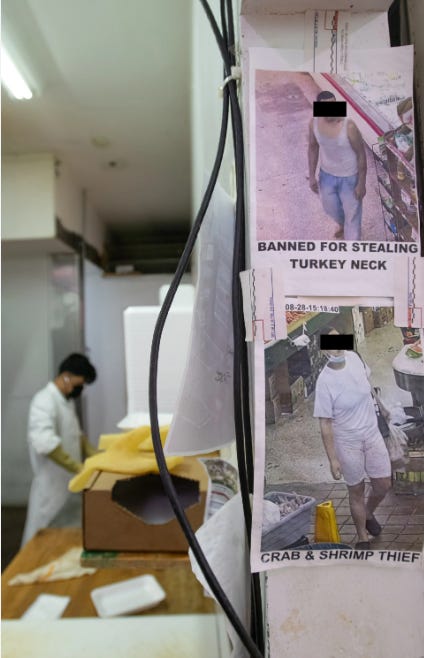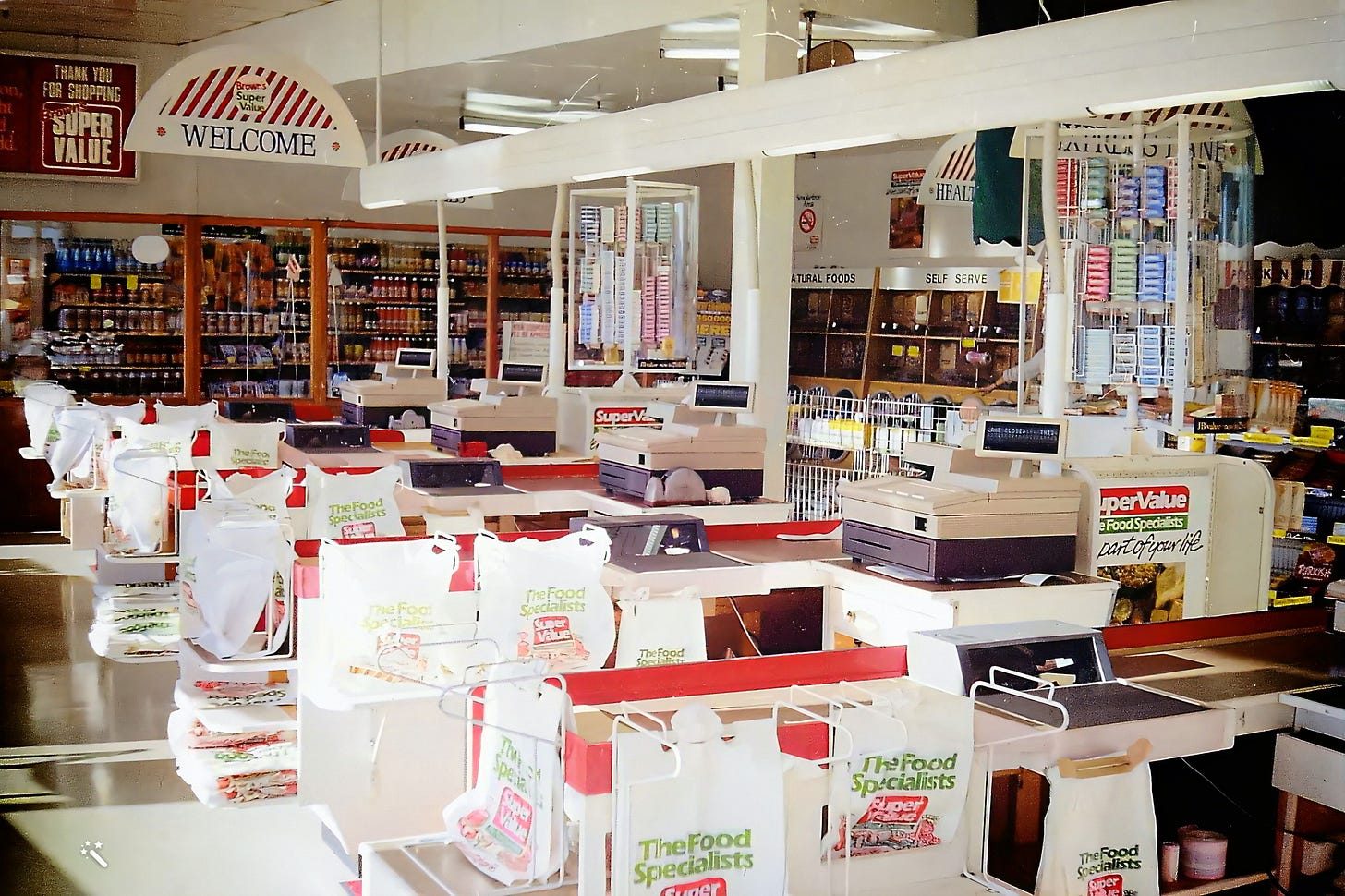Facial Recognition in Supermarkets is an Invasion of Privacy
Facial Recognition in Supermarkets Reduces Recidivist Crime
Foodstuffs supermarkets are one of the first retailers in New Zealand, at least to publically announce that they are introducing FRT technology into their supermarkets to identify known individuals who come into their stores who have previously been involved in criminal activity such as violence and store theft. I wouldn’t be surprised if they aren’t the first, as similar technology has existed in retail for decades, complete with AI that monitors the behaviour of retail thieves, who often work in pairs.
I have seen similar technologies at the annual NRF conference in New York. Today AI is used as a buzzword, often to describe technology that has been used by retailers for decades. it just wasn’t called AI before.
In more primitive ways, we have seen photos of known offenders behind counter walls for years, notably petrol stations, liquor stores and back in the day, video rental. Theft has long been a problem for high-value retailers such as the garment industry, and sectors like consumer electronics have used RFID tags and alarm-triggering tags on small appliances for years.
I spent many years introducing innovative technologies into this sector, and if I were still in it, I would probably be looking at marketing solutions like this. Don’t flame me. While I have publically said that the grocery industry is a license to print money, I also know how hard owner-operators and their staff work. Many have nice cars and wonderful homes and enjoy travel, but when they are in store, they work long and hard. They are also at the top of the list when it comes to supporting their local communities.
When people complain about supermarket prices, they should perhaps consider what makes up those prices. Retail NZ, says that store theft costs retailers in little New Zealand around 2.5 billion dollars a year. If store theft didn’t exist, we might expect to see a big chunk of that in reduced prices. It’s also worth noting that half of the grocery businesses in New Zealand are family-operated and owned businesses, most of whom borrow against their homes and assets to get the finance to buy their business.
Theft has been rife in supermarkets for decades. I used to sell scanning systems to owner-operated supermarkets throughout New Zealand. I didn’t do the installation work, but I trained the managers in how to run POS, particularly helping them understand the reporting systems and checkout staff how to operate the systems, including ergonomics, as I introduced the first side scanners into New Zealand.
One of the jobs I enjoyed was spending the first few days after a system was installed, training and supporting checkout staff. While doing that, I would watch comings and goings, which frequently led to apprehending thieves. That wasn’t my job, but I was there to help my clients.
I remember many years ago, I was in Motueka, where we had installed a system into their Super Value store. During that training period, I pointed out maybe 6 or 7 people who were shoplifting so that management could apprehend them. Some were held and reported to the police, and some were just evicted from the store.
I remember a local coming up to me saying “Everyone in town knows you are the new undercover security guy.” I denied it of course, which only made him more sure that I was. Being a small town, I started getting those looks when I was on the street.
The challenge I have, and that no doubt champions of our ethnic communities have, is concerning the reliability of facial recognition. It is a well-known fact that FRT has major problems in recognising women (often because of make-up and hairstyle changes) and people with dark skin, because it is harder for the technology, which works best in a brightly lit environment, to recognise facial features.
Illustrating the risks, the American Pharmacy chain Rite Aid chain was banned just recently from using this technology for 5 years, after escorting innocent people of colour from their stores, after mistaking their identities. I can’t imagine how it must feel to be wrongly accused of a crime in public, especially with a technology that has a (unintended) racial bias.
I’m not against retailers protecting themselves. I don’t know what the actual frequency is, but they seem to feature on the news almost daily, and I know of people who are feeling unsafe going shopping.
I think perhaps the answer lies in richer data. Today there are very good systems that don’t even need facial recognition technology, rather using AI to monitor the behaviours I saw when working in supermarkets. I think I’d feel more comfortable with a combination. Catch people using the AI, and tell them that their information has now been shared on a database and that they will be trespassed.
This video is a good example of a system that has proven to work well, many times a day!
How do you feel about this trial?





Wow, didn’t have all this context. Interesting. Thank you. And hella concerning. I already felt dread, but wasn’t completely sure why.
Current comment.
Photographing a group of thirty people at a friend's 80th last weekend,bone gentleman's features were less defined, markedly in contrast with the rest of the group. Being of indian descent in the same lighting as 29 others, his face appeared shadowed.
In post-production his smile was clear, features defined and the light in his eyes.
Sadly missing is reference to this aspect in news articles. Creating
unnecessary racial distress.
Keep up the good work Luigi.